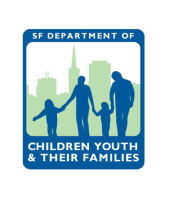“We were the kids of the enemy, so they always treated us really badly… Like we weren’t human.” 
I grew up in Việt Nam. My grandma raised me because my mom left me when I was two months old. I lived with her, but after the war, the economy was really bad so they [the government] took our house– my mom’s house. My aunt and uncle were forced to live in the jungle while my grandparents and I had to live in the temple. The temple was rundown so we were the only ones there, but a few years after, my grandpa died. After that, my mom contacted my aunt in Sài Gòn and my aunt let me live with her and her daughter and her son in law. When I lived with them, I got abused everyday. Her son in law use to hang me upside down and hit me with a metal pipe over and over on “good days” but when he lost while gambling, the abuse was worse. Once I turned 11, I wouldn’t be at home as often. I found a group of kids – Amerasian kids who I hung out with – I was the youngest.
My mom took me over to America, back to my father’s side, but by the time I came here, it was too late. I didn’t have opportunities. If you were younger you got to go back to school, but I was 17. Back in Việt Nam we all wanted to go to America, but if I knew it was going to be like this I’d rather stay in Việt Nam. I came over here with my broken English and the Americans would do what the kids back home did. I was still the outcast again, but I was lucky because I didn’t have to face the Việt Cộng anymore, but there were still battles I had to face here. The biggest thing I wanted out of coming to America was meeting my dad. I just want to know him. I want to see what he looks like, ask him how he has been. Every kid wants to see their dad… They want to meet their parents.”

Tien, thank you for sharing your personal story.
In 1989, the United States passed a congressional policy call the Homecoming Amerasian Act which allowed the Vietnamese children of U.S. soldiers to immigrate to the United States with preferred immigration status. Tien was granted the opportunity to come to America because of this policy, but many of the children weren’t as fortunate. Although this policy aided about 4500 people, thousands of Amerasians still remain in Vietnam, barely making ends meet.





